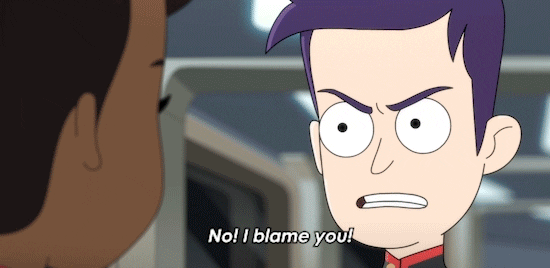September 21, 2021
either/view ⚖️
Quota question
To: either/view subscribers
Good morning. Do you fancy going on a lovely 5-day cruise right here in India? Here’s a wonderful chance to make your dreams come true. The Indian Railway Catering and Tourism Corporation is now offering India’s first indigeneous cruise liner.
Once inside the ship, you can sail through Goa, Diu, Lakshadweep and Kochi. The cruise from Goa to Lakshwadweep will cost you somewhere around ₹40,000-₹56,000. If you have children below the age of 12 years, you do not have to pay for their tickets. However, this child special validity is only for bookings till October 31, 2021. So grab your chance and book your cruise tickets ASAP!

📰 FEATURE STORY
Reservations for Economically Weaker Sections: Right or Not?

Recently, the Madras High Court nixed the inclusion of 10% reservation for Economically Weaker Sections (EWS) in medical admissions. The idea of reservations has always been a sensitive topic in our country. So we decided to decode the controversy around EWS reservation and present to you the two sides of the quota conundrum.
We know the general protocol in quotas. Special provisions are allocated keeping in mind the social inequality among the people. For a long time, the definition of social inequality was limited to caste. But two years ago, the Indian government acknowledged that caste was not the only eligible criteria under the ambit of reservation. People from Economically Weaker Sections (EWS) are also at a huge disadvantage in society. So, the government introduced a 10% reservation in all higher education institutions and government job opportunities on the basis of economic backwardness.
The government quipped that this reservation would benefit those who do not fit the bill of a SC/ST/OBC reservation but are genuinely in need of a quota. But critics do not seem to agree with the government’s claims. They say the government’s criteria to identify EWS is too broad and therefore, ruins the purpose of a reservation.
Context
It was in January 2019 that the cabinet approved the 10% reservation for EWS. They clarified that individuals who have a family income of less than ₹8 lakhs per annum were eligible to apply for this reservation. Additionally, the family must not own agricultural land more than 5 acres or a residential flat area over 1000 sq. ft.
It was pronounced that this provision would be only for the financially disadvantaged general category candidates. By introducing the EWS reservation, the government made it clear that some people within the upper caste were in dire need of the reservation.
Now, this is how the events leading up to the approval of the reservation panned out. On 8 January 2019, a bill to amend the reservation policies in the Constitution was tabled in the Lok Sabha. The lower house of the parliament passed the Bill immediately. The bill also received approval from the Rajya Sabha the following day. By 12 January 2019, the President had also given his assent to the bill. The bill turned into a law and came into force on 14 January 2019.
When the EWS reservation was extended to medical admissions, PM Narendra Modi hailed it as a “landmark decision”. He said it will create a paradigm of social justice in India. However, many people are against this decision. They say this reservation lacks logic because the very parameter it is based on is flawed. An annual family income of less than ₹8 lakh covers almost 95% of the Indian population. They question if this means 95% of the population are in need of reservations.
EWS reservation is important: Government
Let’s keep aside the arguments and look at how the reservation will benefit thousands of people. Firstly, like PM Modi said, the policy is rooted in the concept of social equality. This 10% reservation would go a long way in bringing justice to all the weaker sections of society. This decision is logical because if reservation means social justice, the disadvantaged among the general category should be included in the reservation policy. Moreover, the benefits to the EWS were constitutionally amended in 2019. So it does not violate the law.
Not only does the law prove beneficial for the poor, it is also seen as a reservation policy for Muslims. Well, at first glance, this might look out of proportion. But a closer look would tell us that, in fact, Muslims have suffered societal exclusion, much like the SC/ST/OBC category. Indian Muslims have been pushed to the wall socially, economically and educationally. However, they could not claim reservations. The EWS reservation would mitigate this problem and would promote inclusiveness. Then, this reservation is a combination of social and economic reservation.
While some people have raised questions about the percentage of quota, many supporters say the 10% reservation is fair. If we go by the books, till 2019, 31% of Indians were excluded from reservations. Removing the ‘creamy layer’ of 10% from this calculation, nearly 21% would fall under the category of EWS. But the government went ahead with a principle of equity and chose 10% reservation instead of the actual number. Experts say this is a reasonable move. Had the government followed previous strategies to calculate the reservation percentage, the quota should have been 15%. But the 10% has been fixed after careful consideration.
There should be no fear that the EWS reservation would affect the chances of people under other categories. This quota is separate from the SC/ST/OBC reservation. Therefore, any misconception that the EWS reservation will eat into other reserved seats is unfounded.
Lastly, we must acknowledge that the bill had received unanimous support from political parties. The bill was passed with a majority in both the Houses of Parliament and many states have shown interest in implementing it. So, the law is completely constitutional and has been made keeping in mind the many benefits it would reap.
EWS reservation is not needed: Critics
While it is true that the bill was passed by both houses, suspicion arises in the manner of introducing the bill. Critics point out that the bill was introduced without prior announcement and came as a surprise on 8 January 2019. Normally, the draft of the bill should have been shared with the parliamentarians before introducing it in the house. Though not illegal, the sudden introduction of a bill would have resulted in a lack of time for the parliamentarians. Not just that, the bill was introduced, passed and made into a law within a span of very few days. Such a hasty decision is not in line with constitutional morality, say critics.
Next question is quite evidently on the eligibility criteria of the EWS reservation. By setting the limit at less than ₹8 lakh per annum, the quota would envelop a huge mass of middle-class people, who are presumably more privileged than the most vulnerable. Based on India Human Development Survey, nearly 98.3% of Brahmins and 97.93% of other upper castes will be eligible for the EWS reservation. Clearly, the threshold of annual income is too high. The criteria based on assets are claimed to be flawed as well.
The Supreme Court has time and again reminded that reservations are considered to be a remedy for historical discrimination. It has also ascertained that quotas are not poverty alleviation programs. So the EWS reservation policy is directly against this ruling. It will only dilute the caste-based reservation.
Experts argue that the government does not have verifiable data to prove the need for EWS reservation. Add to that, there is a 50% cap on reservations. But by amending the constitution and introducing the EWS reservation, the government has breached the reservation cap. With the entry of EWS reservation, the total reservation will drive up to 59.5%.
🕵️ BEYOND ECHO CHAMBERS
For the Right:
With Its Punjab Move, Congress Takes A Calculated Risk
For the Left:
Quad tent just got bigger with AUKUS. China’s aggressive behaviour will be under watch
🏴 STATE OF THE STATES
Border Outposts (Ladakh) – Have you ever thought about the difficulties of Indian defence troops who are suffering under severe climatic conditions? The climate in many areas is freezing cold, making it difficult for them to stay. Let’s take a look at Ladakh. The winter is very tough and many troops have been deployed here following a face-off with China last year. To help the soldiers, the government came up with a plan to build border outposts. These will have freeze-proof toilets, running water and temperature above 22°C. This was announced in 2015 and several crores have been invested. However, it remains useless today. The National Projects Construction Corporation and the Ministry of Home Affairs are blaming each other. While MHA claims that the NPCC isn’t able to raise the temperature above 10-11°C and the quality of insulation is poor, NPCC blames the withheld payment for the reduced efficiency of the outpost. This has now resulted in a deadlock.

Image Change (Tamil Nadu) – Post the pandemic, parents across the country have shown interest in enrolling their children in government schools. The reason is twofold. Besides low fee dues, the government schools have drastically improved over the past few years. To keep up the momentum, the Greater Chennai Corporation is taking more efforts to renovate buildings and improve the quality of education provided. Under the City Investments to Innovate, Integrate and Sustain (CITIS) scheme, a total of ₹92.25 crores has been allotted to develop the schools. 28 Corporation-run school physical structures will be revamped, teachers will be trained and teaching methods will be changed. Additionally, a football ground will be constructed in Tondiarpet school to conduct the popular 7s football tournaments in Chennai. A volleyball court will be built in the school in the Anna Nagar zone. All the schools will have toilets for children with disabilities and such toilets will have anti-skid flooring. All schools will also have a new compound gate with an improved arch design. The GCC is trying to offer services at par with the private schools of the city.
Portable Premises (Odisha) – Life demands us to be on the move. With the global world well connected, we keep shifting places for work and leisure. While doing so, we carry our clothes, books, necessary items, phones, laptops and others. But what if we could shift our house to wherever we re-locate? Yes, an engineer and his daughter have built fibre reinforced plastic (FRP) houses. The father-daughter duo has come up with first of its kind houses. The outstanding feature of such houses is the aspect of portability. They can be moved from one place to another if needed. They are fire-resistant, quakeproof and are user friendly. We all dream about affordable and durable houses, now, we can have portable houses as well!
Cycle in Metro (Maharashtra) – Every state has been steering towards making an eco-friendly space. In a bid to boost eco-friendly transport, the Maharashtra Metro Rail Corporation Limited (Maha Metro) has come up with a plan. According to this, commuters will be permitted to carry their bicycles with them on the Pune Metro. You don’t have to pay any extra charges. A successful trial run has been done. The government wants to promote non-motorised modes of transport and encourage a healthy lifestyle. The commuters are overwhelmed by this initiative and have also suggested measures to make this more travel friendly. It looks like Pune, the city of cycles, will soon be back to where it belongs.
State Fish (Sikkim) – Endangered species are named state animals and state birds. This is because it will give a sense of pride to the people of the state and will also help in conserving the specific species. Recently, the Sikkim government has declared ‘Katley’ fish, also known as Copper Mahseer, as the state fish. This species was categorised as endangered by the ICAR-National Bureau of Fish Genetic Resources in 1992 and by IUCN (International Union for Conservation of Nature) in 2014. Officials say that declaring Katley as state fish will highlight the importance of the fish and give emphasis to its conservation measures.
🔢 KEY NUMBER
21% – Gen Z feel that following their passion is the most important thing in life instead of having a stable job, as per the 2021 MTV Youth Study report. This trend has grown exponentially from 9% in 2016.

